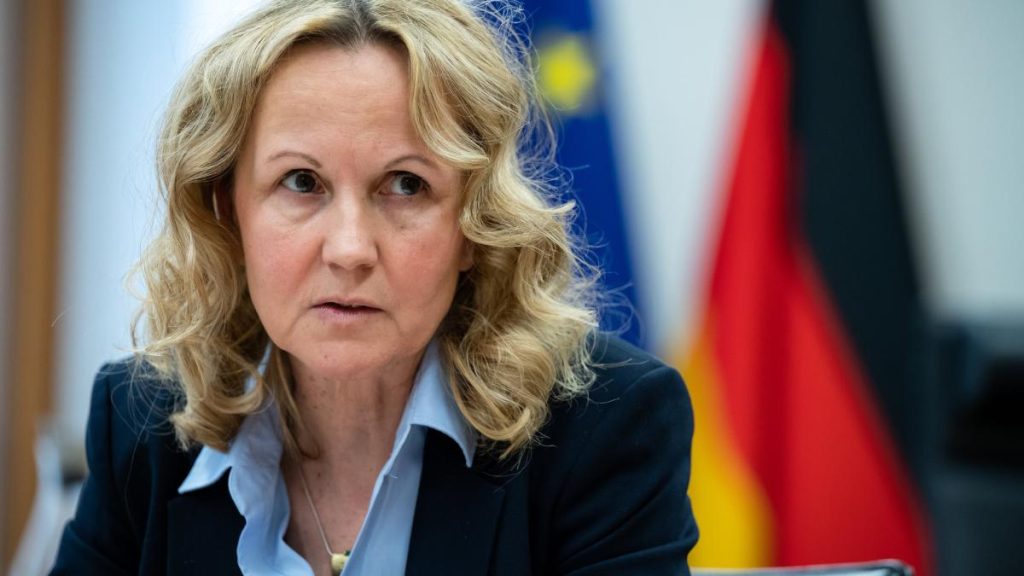Germany’s Environment Minister, Steffi Lemke, from the Green Party, has criticized the “unrealistic myth-building” surrounding nuclear energy. Lemke stated that there is no going back from the decision to phase out nuclear power in Germany, as all nuclear power plants in the country have been shut down for a year now. She expressed frustration with the debate over the benefits of nuclear energy, emphasizing that the move to phase out nuclear power has made the country safer.
Lemke noted that the political debates in Germany regarding nuclear power are increasingly detached from reality. She criticized those who advocate for a return to nuclear energy, labeling it as an “energetic panacea” and pointing out the growing disconnect between these views and the facts. The decision to phase out nuclear power in Germany was seen as a positive step, particularly in uncertain times. Lemke emphasized the importance of looking ahead and safely disposing of the radioactive waste left behind by the nuclear industry.
Critics of the nuclear phase-out had raised concerns about Germany’s energy security and the impact of shutting down nuclear power plants, especially in the context of the energy crisis. However, studies, including the recent Prognos study on implementing the energy transition, suggest that these concerns were unfounded. The last three nuclear power plants in Germany accounted for only five percent of the country’s electricity production, and the Minister of Economic Affairs, Robert Habeck, reassured that the country’s energy supply was secure even with the nuclear phase-out.
Minister Lemke highlighted that the global share of nuclear energy in electricity production has been declining for years, with nuclear projects facing increased costs and cancellations worldwide. She reiterated that nuclear energy is a high-risk technology, emphasizing that no insurance policy covers the risk of a nuclear meltdown. Lemke also drew attention to the lack of progress in many countries in finding a solution for the disposal of nuclear waste. She called for a collective effort to safely manage the legacy of nuclear power in Germany and urged for a focus on moving forward.
The debate over nuclear power in Germany continues, with conservative circles calling for a reintroduction of nuclear energy. However, Lemke and other proponents of the nuclear phase-out argue that the risks associated with nuclear power outweigh the potential benefits. The shift towards renewable energy sources, along with efforts to safely decommission nuclear facilities and manage radioactive waste, represents a more sustainable and environmentally friendly path for Germany’s energy future.
As the first anniversary of Germany’s nuclear phase-out approaches, discussions around the decision and its implications for the country’s energy landscape are ongoing. Lemke’s comments reflect the government’s commitment to transitioning towards cleaner and safer energy sources, despite challenges and opposition from some quarters. The focus remains on ensuring a secure and sustainable energy supply while addressing the legacy and risks of nuclear power in a responsible manner.


